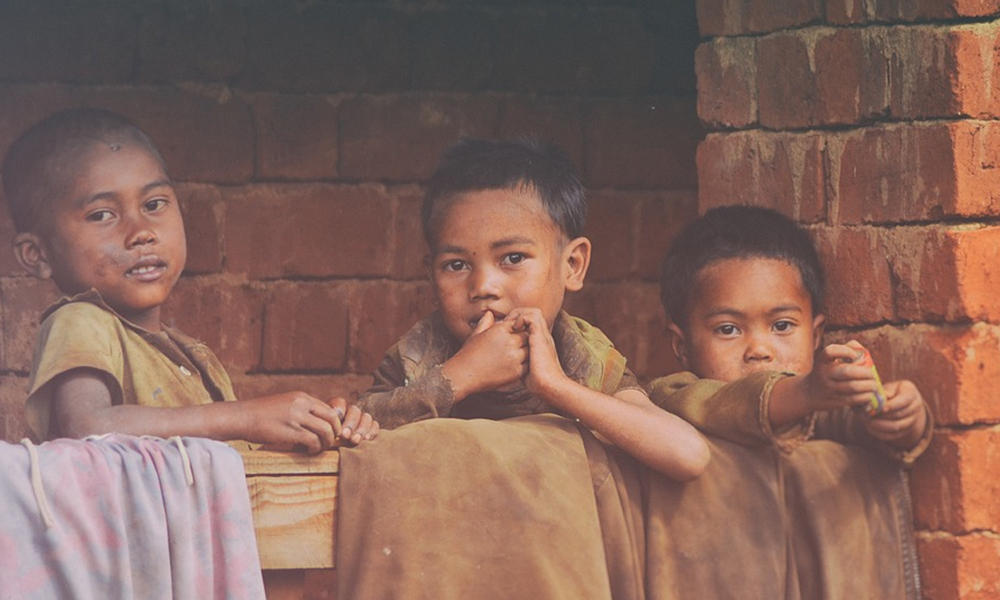
India Among 88 Countries To Miss Global Nutrition Targets By 2025: Report
Writer: Navya Singh
Navya writes and speaks about matters that often do not come out or doesn’t see daylight. Defense and economy of the country is of special interest to her and a lot of her content revolves around that.
India, 15 May 2020 12:00 PM GMT
Creatives : Abhishek M |
" An engineer by profession, Abhishek is the creative producer of the team, graphic designing is his passion and travelling his get away. In more ways than one, he makes the content visually appealing."
If no action is taken the pandemic will lead us into an inevitably vulnerable future with malnutrition affecting our immune systems, leaving us as susceptible to hosts to more infections, the report said.
This year's Global Nutrition Report (GNR), world's leading independent assessment of the state of global nutrition, comprising global institutions and led by experts in the field has revealed the inept state of food and health systems globally.
The report released on Tuesday draws out that the inequalities within these systems and malnutrition are severely impacting the already vulnerable populations.
With COVID-19 pandemic threatening systems around the world, it has become an immediate concern for government businesses and civil societies to address the global nutrition crisis in all forms.
According to the report, India, with one of the highest rates of domestic inequalities in nutrition, is among the 88 countries to miss global nutrition targets by 2025. It stated that malnutrition is still one of India's biggest challenges.
1 in 9 people are still undernourished while 149 million children under 5 years of age are still affected by stunting globally. At the same time, more and more people of all ages are turning obese with 1 in 3 people are either overweight or obese. Globally, strong government action is lacking. Overweight, obesity and diet related chronic diseases tend to get deprioritized in lower countries.
Gerda Verburg, UN Assistant Secretary General, Scaling Up Nutrition Movement Coordinator and member of the GNR's stakeholder group, said: "2020 must represent a turning point for nutrition. As we look to reinforce our resilience to global stresses, nutrition must become a key component of any emergency or long-term response. Investing in nutrition, renewing and expanding commitments, and strengthening accountability has now become urgent if we want to prepare our systems for future shocks, and avoid a reversal of gain."
The report also showed relation between levels of malnutrition and population characteristics like location, age, sex, education and wealth. If no action is taken the pandemic will lead us into an inevitably vulnerable future with malnutrition affecting our immune systems, leaving us as susceptible to hosts to more infections.
The report addresses the need to change the food systems - current agriculture systems focus on staple grains like rice, wheat and maize, rather than producing healthier foods, such as fruits, nuts and vegetables, fresh or perishable foods are less accessible and affordable in many parts of the world compared to staple grains. Processed foods are cheaply available and intensively marketed.
In a number of countries such as India, Nigeria, Peru and Thailand solutions to such problems have started to be implemented. These include: increased public investment for healthier food products, support for shorter supply chains for fresh-food delivery programmes, use of fiscal instruments such as taxes on sugar-sweetened beverages (now in 73 countries), limiting advertising of junk food, and food reformulation, or the use of front-of-pack labelling (FOPL) to inform consumers and influence industry behaviour adopted by Chile and the UK. However, the gap between food systems and healthcare requires intensive efforts globally.
A miniscule portion of national health budgets goes into nutrition actions. In many countries, health checks do not cover diet quality or the nutritional status of populations. Globally, the median number of nutrition professionals stands at 2.3 per 1,00,000 people.
Renata Micha, Co-Chair of the Report and Research Associate Professor at the Friedman School of Nutrition Science and Policy at Tufts University, said: "Good nutrition is an essential defence strategy to protect populations against epidemics, relieve the burden on our health systems and ultimately save lives. The findings of the 2020 Global Nutrition Report make clear that tackling malnutrition should be at the centre of our global health response."
Also Read: Hunger, Poverty Huge Worries For India: NITI Aayog
 All section
All section















